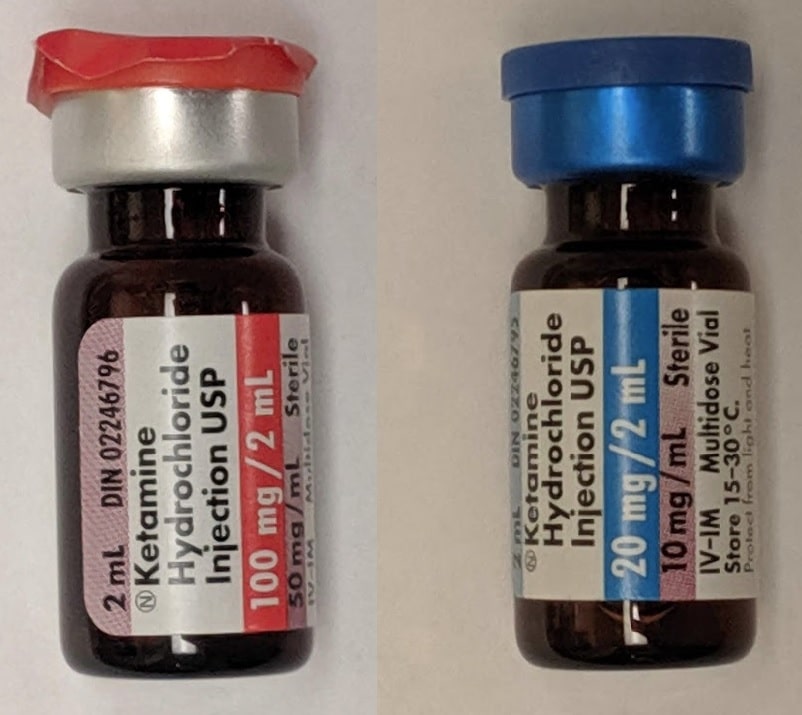Research published in Nature Communications on November 26 suggests that a single dose of ketamine may help mitigate problematic drinking. Researchers from the University College London (UCL), led by Dr. Ravi Das, recruited 90 primarily beer-drinking participants who indicated problematic drinking patterns.
The researchers separated them into three groups: the first group received a dose of ketamine and psychological intervention after completing an alcohol ‘memory retrieval’ exercise; the second received a placebo after completing the same exercise; and the third group received just ketamine without performing the memory retrieval exercise.*
Over a 10-day followup, the first group that received ketamine and completed the memory retrieval exercise had lower cravings for alcohol and drank less both in frequency and in volume, compared to the other two groups.
Over a nine-month followup, all three groups decreased their alcohol intake. But the first group still showed the most significant improvement, cutting their average alcohol use by half.
This research is significant for its focus on the brain’s “reward pathways,” which have also been a focus of previous research. For a 2017 study published in Biological Psychiatry, researchers at the Texas A&M Health Science Center examined how alcohol affects the behavior of mice and their reward pathways.
The scientists in that study looked at activity in the brain’s dorsal striatum. This region has two competing pathways, they posited, that either encourage or inhibit behaviors. After repeatedly dosing mice with 20-percent alcohol over the study, the researchers observed increased activity of the excitatory neurotransmitter glutamate, and decreased activity of the inhibitory neurotransmitter GABA. In other words, heavy alcohol consumption seemed to condition the mice’s brains to reward that activity more.
In the new UCL study, the researchers showed participants a glass of beer, as well as images of beer and people drinking. The purpose was to study the impact of memory and cognitive associations on alcohol consumption. Because ketamine blocks the memory-forming NMDA brain receptor, it may help weaken or erase environmental triggers that can influence someone’s alcohol consumption.
“While one of the negative side-effects of ketamine is the disruption of memory formation, in the context of alcohol use disorder, it could actually work as a positive side-effect,” wrote Adi Jaffe, PhD, an addiction and mental health expert unaffiliated with the UCL study, in Psychology Today. “In other words, it can be used to override the memories that drive alcohol use and related behaviors.”
“A drug like ketamine could be part of a medication-assisted therapy approach … it is not a magic bullet.”
But Jaffe (who has also written for Filter) cautions that any research into ketamine for alcohol use disorder should also study how the drug’s side effects—such as hallucinations, dissociation or “out of body” experiences—can affect people differently. People with a tendency to substance use issues should approach ketamine therapy carefully.
“A drug like ketamine could be part of a medication-assisted therapy approach,” he said, “meaning it is a supplement to a comprehensive program that must include a behavioral component, such as cognitive behavioral therapy—it is not a magic bullet.”
Another application worth researching further is how, when alcohol use disorder and depression co-occur, both might be treated simultaneously. The FDA approved a pharmaceutical ketamine formulation for depression earlier this year, in an example of how rethinking drugs can bring benefits.
In a 2018 Yale University study, researchers recruited five participants with both alcohol use disorder and major depressive disorder. They injected them with naltrexone to mitigate alcohol cravings, then began an eight-week regimen of four ketamine infusions. All participants reported a reduction in their depression symptoms after multiple ketamine doses.
“[The results] raise the possibility that for people who have depression complicated by substance abuse disorders, the combination of ketamine and naltrexone may be a strategy to explore in the effort to optimally treat both conditions,” said study lead Dr. John Krystal.
For the time being, further research will be needed to understand better how ketamine affects reward pathways and other cognitive processes related to problematic drinking. Dr. Ravi Das and his team at UCL are fundraising for a clinical trial to do just that.
Though Das knows his recent study’s findings on the treatment of problematic drinking are not totally conclusive, he is encouraged. “Every behaviour is encoded in our memories,” he said. “An important takeaway is that these habits and unhelpful memories can potentially be unlearned.”
Image of intravenous ketamine doses by Doc James via WikiMedia Commons.
*Updated December 3, 2019 to more accurately describe the study protocol.




